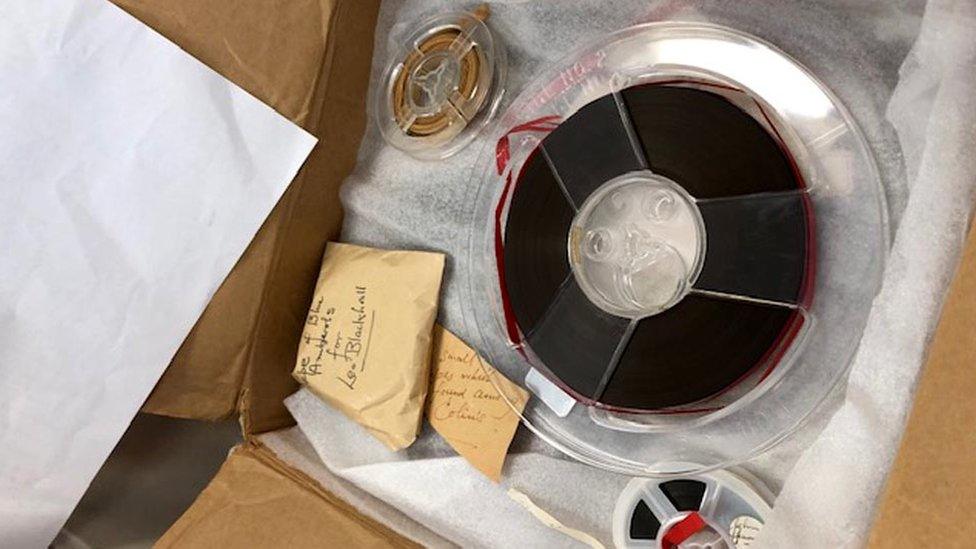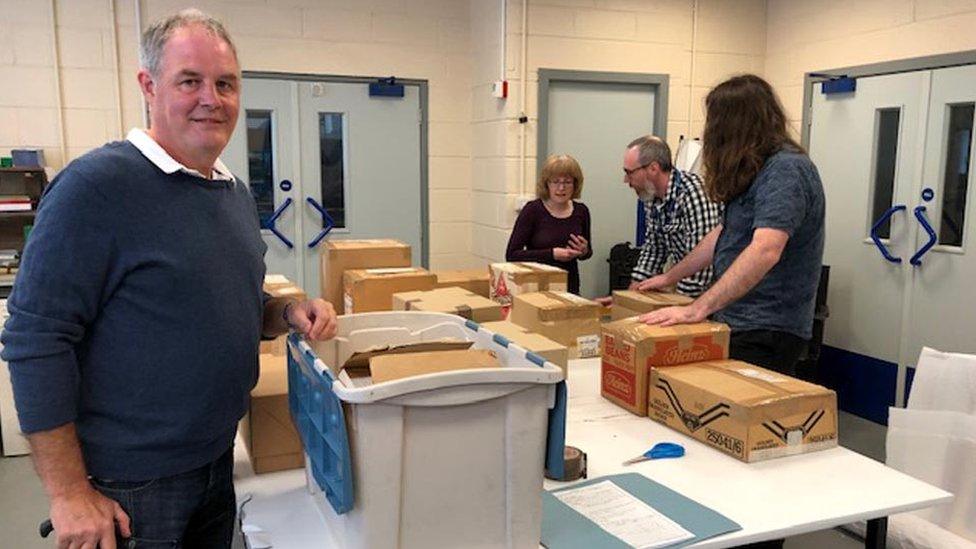Traditional Scottish music archive is digitally preserved
- Published

Reel-to-reel recordings are among the material involved in the project
Rare recordings of Scottish traditional music made in Aberdeenshire dating back to the 1940s are being preserved as part of a major project.
Hundreds of recordings have been transferred from the museums archive in Mintlaw into the care of experts at the National Library in Glasgow.
Some are at risk of degrading while others are stored on formats that can no longer be played.
It is part of the British Library Unlocking our Sounds Heritage, external scheme.
Reel-to-reel tape recordings from the John Junner Collection were selected for the project.

David Cook said the work was of national significance
Mr Junner, a schoolteacher and musician from Strachan, was an acknowledged authority on the music of James Scott Skinner, a violinist, fiddler and composer from Banchory, and many local musicians were recorded.
'Vitally important'
The full collection comprises musical instruments, recording and playing equipment, and recordings on wax cylinders, tapes and cassettes.
David Cook, of Aberdeenshire Council, said: "Whilst the recordings are in good condition, they are threatened by physical degradation and some are stored on formats that can no longer be played.
"Being part of this national initiative will ensure some of our local recordings of Scots music will be digitally preserved and available to folk at home and abroad for future enjoyment and learning."
The National Library of Scotland is one of 10 sound preservation centres across the UK created by the £18.8m Unlocking Our Sound Heritage project.
Dr John Scally, Scotland's National Librarian, said: "Our sound heritage is under threat as tapes, minidiscs and lacquer, vinyl and shellac discs degrade or equipment to play them becomes obsolete.
"This is a vitally important project that will help to save the nation's sounds and preserve them to be enjoyed for many generations to come."